Madalyn Warren
Kimchi Harvest
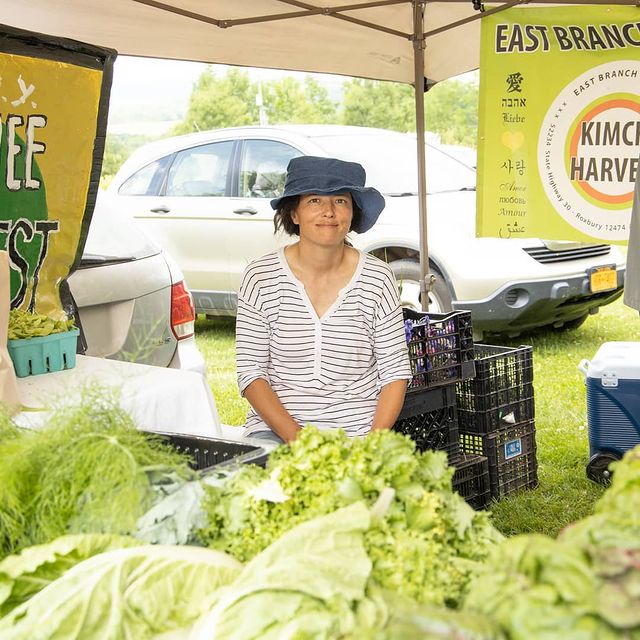
What are the challenges of being a woman in this field?
Major challenges in agriculture are not gender specific, nature does not discriminate. Personal challenges are with cultivating diversity everyday and fighting my own inertia and compulsion to over simplify.
What woman has most influenced you in your work?
My mom and mother earth.
What do you love about your work and farming?
I love working with nature and keeping up with the seasons. Every year i get stronger, the ecosystems on the farm become more complex and the honor and responsibility to feed people nutritious food and support dreams deepen.
-----------------------------------
Shereen Alinaghian
Ardith Mae
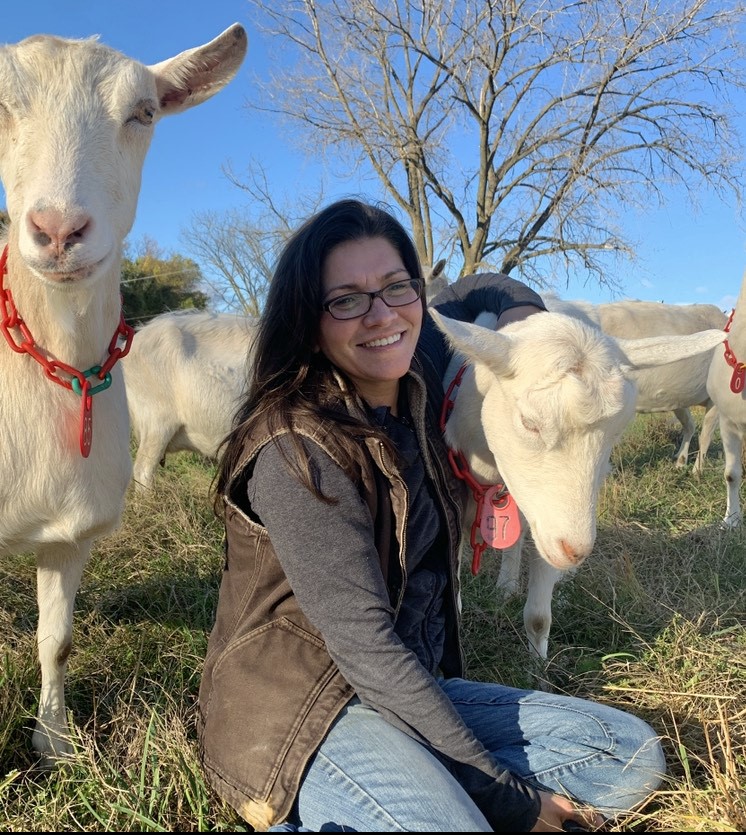
What are the challenges of being a woman in this field?
I spoke to other females, female farmers, and the girls that work for me about this question. It’s kind of funny because I don't find that there are any challenges for women more so than for men, at least in our group. I think it’s difficult for everybody. Farming is really tough for everyone. I actually think that as a female, it might be a little bit easier when dealing with livestock because you have a better understanding of the female anatomy. You might be a little more delicate when it comes to having to intervene in a difficult labor as well as aftercare. We all kind of have the same basic parts, and so we have a better understanding of what it's like to produce milk and the different literal growing pains the animals go through.
I think it might actually be a little bit easier for women. Especially in the Hudson Valley, female farmers are so common now. Nobody really thinks differently in dealing with men or women. I think, overall, most farmers and those people dealing with farmers are looking for somebody who's knowledgeable about what they're doing. That's where they start to kind of gain respect for you. When I started farming, I was farming in northeastern Pennsylvania, which is very different than the Hudson Valley. There were some challenges because we were starting construction on our first facility. The contractors, and even the men that I would buy hay from, would say things like, “Let me talk to the boss” and “we'll see what he says.” The boss, who was my husband at the time, would come to me and I would say, “Just tell them I am the boss!” They could talk to me, or we can play this telephone game. But once they realized that I was on the farm and building the farm with the contractors inside, it was fine. I think that most men in certain areas just aren't really used to seeing a female that is as knowledgeable as a lot of men in the industry.
What woman has influenced you in your work?
I don't have anyone in particular other than my mom. My mom is the most independent, kind of badass woman that I know. She always taught me that I didn’t need a man to carry luggage or to paint a room. She's always really encouraged me to be the tomboy that I've always been. My mom always supported me in farming. When things got really tough and I was having a really hard time financially or just managing the farm on my own, she was very supportive. She's always inspired me to be totally independent of a partner. I think that's helped tremendously in molding who I am.
Was there a moment where you felt you had hit your stride? If so, please describe.
Never. That's the beauty of farming. As soon as you think that you’ve hit your stride, something happens and it's a real lesson. But that's one of the reasons I love farming so much. It’s never boring. There's always something to learn and you can always grow to become more mindful of what you're doing short-term and long-term. There is no stride - I'm always pushing to do more and have a positive impact on all the people around me. Farming is so humbling, I would be afraid of what would happen if at any point I were to hit my stride. I never want to feel that way. I always want to be on my toes and remain proactive.
What do you like about being a farmer or about being in agriculture?
With farming there's so much to learn-- it's really endless. Once you think that you have things figured out, there's more research on things like parasite management or new farming techniques. Cheesemaking is really fun, and we have the ability to be creative within that. It’s not just raising animals all the time. But the animals are what make it special for everybody. Goats are magical - they really test your patience but they all have such unique and individual personalities.
Farming is beautiful. I’m outside all the time. All of my views are of open pastures and animals grazing on them. It’s great being able to watch all of the seasonal changes.
-----------------------------------
Rebecca Rainville
Greener Pastures Farm
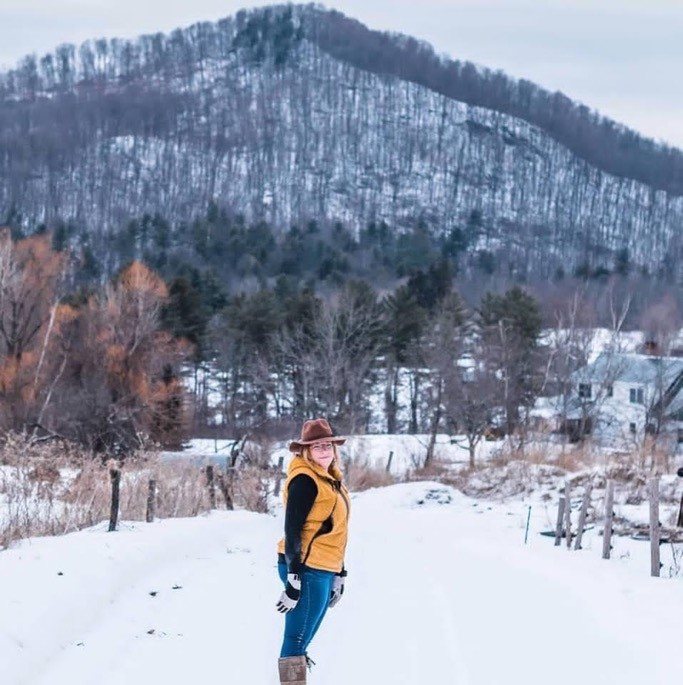
What are the challenges of being a woman in this field?
Mostly, I'm pretty self-motivated and I can do a lot of stuff on my own. The biggest thing that I have trouble with right now is getting funded as a woman. I don't know if it's specifically woman-based, but I feel like when it comes to trying to get a loan, people don't think you really know what you're talking about. You kind of get that stereotypical response like, “You're not a man and you're looking for a farm loan?” I feel like we get a lot of that still. Like when I go to pick out a piece of equipment and people kind of look at me weird.I understand I'm a woman but, yes, I want to buy this tractor. It's sometimes hard to explain to people that I am a woman and I am in agriculture, and this is really what I do. Sometimes people just don't believe I’m a woman pig farmer. It's just not something you see. Usually people think that it’s your husband that's farming, and you are just the second half to the farm. But it's me. This is my farm.
What woman has most influenced you in your work?
Mary from Five Marys Farms. She's out in the Midwest. I watch a lot of her stuff. Her’s is a woman-based farm and she has all daughters. So it's all women running the farm.
Was there a moment where you felt you had hit your stride? If so, please describe.
Actually, last year I had finally figured it out, and then COVID hit. But I said, “You have been successful before and now you get to go and play in the bigger sandbox with all the different people.” People were focusing more on local, which was really nice--to be able to provide extra for people, accurately, effectively, and rather quickly. Pork and chicken have a very fast turnaround, so last spring was honestly probably my best moment.
What do you like about being a farmer or being in agriculture?
I love that being able to educate people about the different products, whether it’s from birth to processing to raising, but also the finished product. Teaching people how to cook and use every part of the product as well as other things. I've taught people how to render the product down to make lard and use it for a million different things, how to make soaps with lard. People don't usually think of that, so that's been really inspiring.
-----------------------------------
Chrissy Chiachia
Gaia's Breath Farm
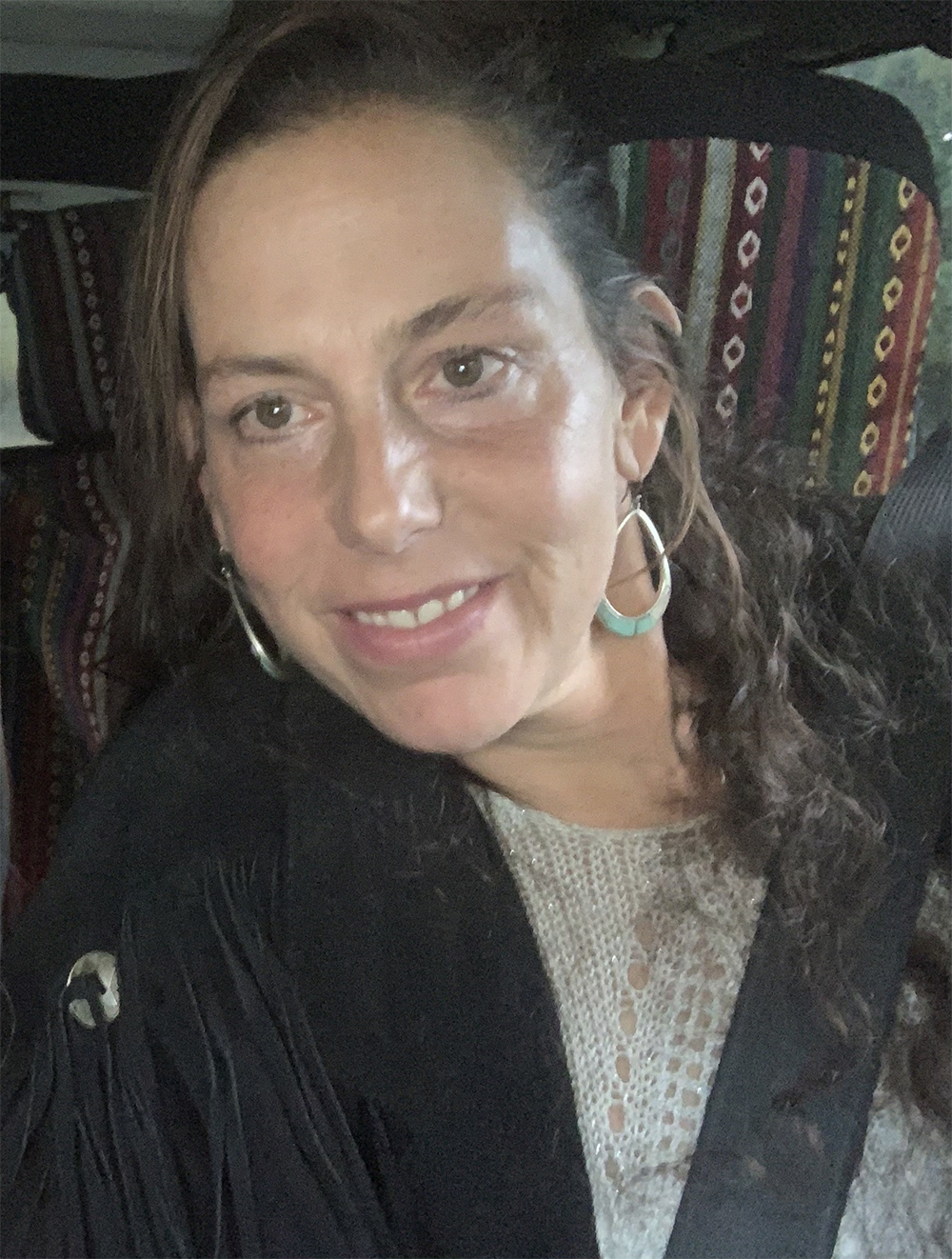
What are the challenges of being a woman in this field?
Not being taken seriously as someone who can operate any piece of farm equipment or managing daily trials and tribulations of farming since to be a good farmer you have to be a good problem solver and manage stress appropriately.
What woman has most influenced you in your work?
There’s three; my mother, Patricia Chiacchia, Julia Childs, and my first mentor, Leslie Revsen who was one of the first women to work in the kitchen at the Waldorf Astoria.
Was there a moment where you felt you had hit your stride? If so, please describe.
When I’m on the tractor in the middle of July and everything is growing and lush and we almost have a handle on everything. I feel like I’m ready to deal with any problems that come our way which they always do. I love walking in the potatoes and fields of other crops and feeling their energies.
What do you love about farming?
Being able to fulfill my dream of practicing culinary arts using the best possible ingredients which we grow and raise on our farm. Everyday there’s something new! I love planting a seed and/or birthing an animal and seeing and reaping the rewards. Also there is nothing like the smell of the soil after the the winter thaw. I absolutely love to see the smile and joy on the faces of people who eat our food!
-----------------------------------
Laurel Bell
Wood Thrush Farm

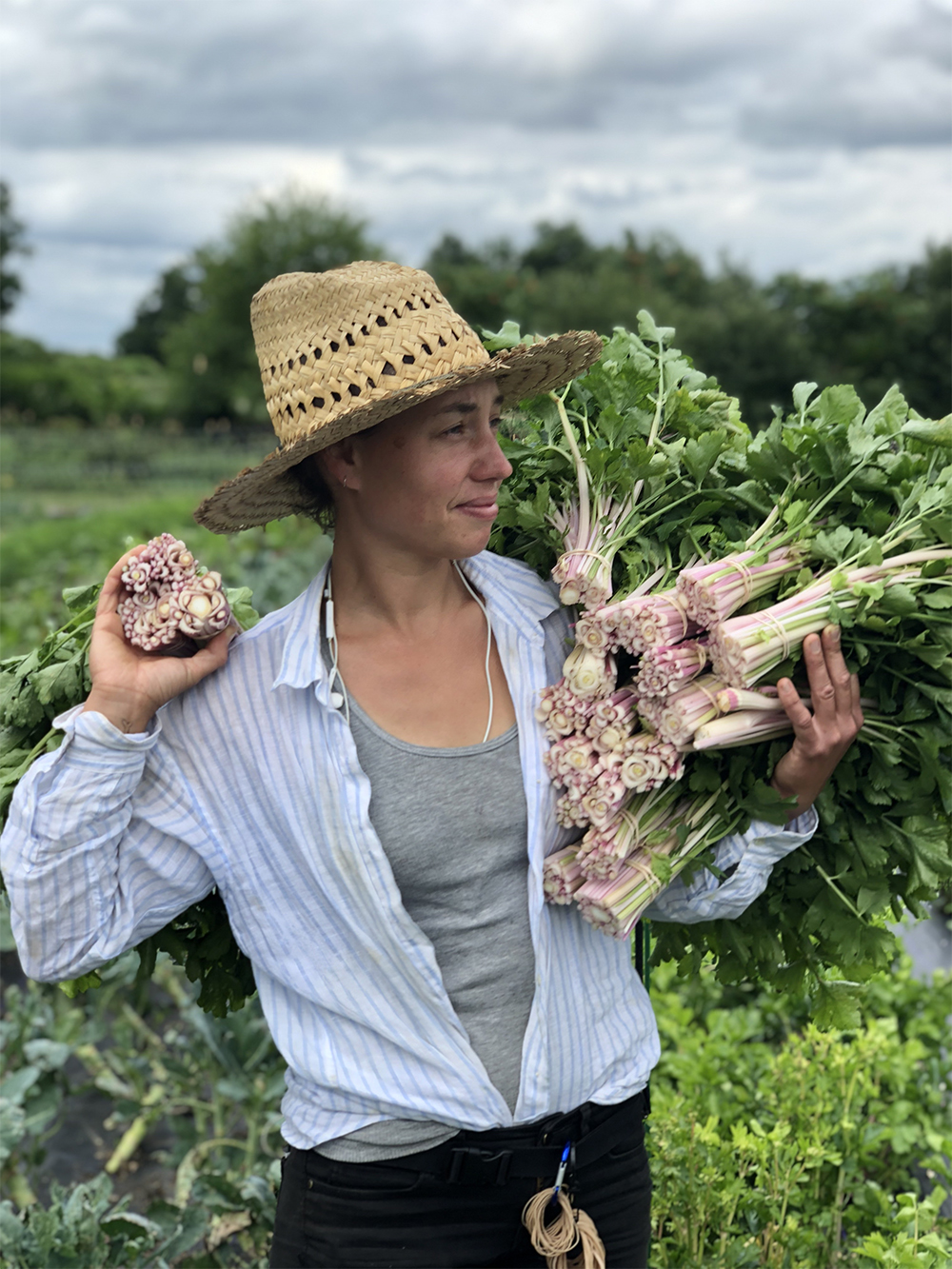
What are the challenges of being a woman in this field?
The biggest challenge for me as a woman, is teaching myself to have faith in my knowledge and experience. I’ve trained for farming my entire life, I grew up on a farm in Virginia, was raised by artists, farmers, veterinarians, and a paleontologist. I have always grown food, whether it be in a field, a backyard, or on a stoop. It is what I know the best, and yet it’s easy to have self doubt or to compare myself unfairly to my male counterparts. It is frustrating, the awed responses from some men when I am able to complete a seemingly simple mechanical task, as if it’s a surprise that I have a brain. Between farming and my previous profession, working as a chef, I’ve dealt with a lot of patriarchal hierarchy in the last decade. I’m really proud to be a woman who owns a farm business, and little by little I can help break up the assumption, not all farmers are white men.
What woman has most influenced you in your work?
I’m going to have to pull the mom card here.
My mother has always encouraged attention to nature. She once woke me up in the middle of the night when there was a Great Horned Owl outside her bedroom window. The Peterson’s Guide for Birds (on vinyl) often echoed throughout our house and she taught me the names of birds who frequented the feeders, the fields, and waterways. She took us on fossil digs, she encouraged my fascination of insects and provided terrariums to be converted into frog, fish, or praying mantis homes.. I did learn first hand what happens after praying mantises mate. Most of all, whenever I wanted a garden she would make it happen; I had flower gardens, vegetable gardens, and even a shade garden. One of our favorite activities was to visit the nearby nurseries so that we could find a new gem to add to our collection. Her love for plants was infectious and I learned that from an early age. I am who I am and can proudly call myself a farmer, because of my mother.
Was there a moment where you felt you had hit your stride? If so, please describe.
Over the recent years I’ve gotten several compliments from farmers who have been in the business for 30+ years. I was looking to them for advice and guidance, and then was told I was growing crops better or more efficiently than they were, it was a definite ah ha moment. I realized my desire to learn, my ability to adapt, and my ingenuity and love for puzzle solving finally had an outlet. Farming is all about trial and error, learning from mistakes and finding ways to improve. It is a lifestyle where I can combine all of my personal strengths and even flaws, and I thrive.
What do you love about farming?
I love being outside, I love feeling, hearing, and tasting the changing of the seasons. I love being exhausted by summer and enjoying the downtime of winter. Previously, I went to school for holistic cooking, and as wonderful as it was to make good food for clients/customers, I always found myself stuck in a basement or a foreign kitchen. Being a market farmer allows me to know my customers in a much deeper and more reciprocal way. I’ve known our customers and fellow farmers for the last 8 years, and many of them are some of my closest friends. I love the reward of growing delicious food, and I also love the community we have as farmers.
-----------------------------------
Sharon Burns Leader
Bread Alone Bakery
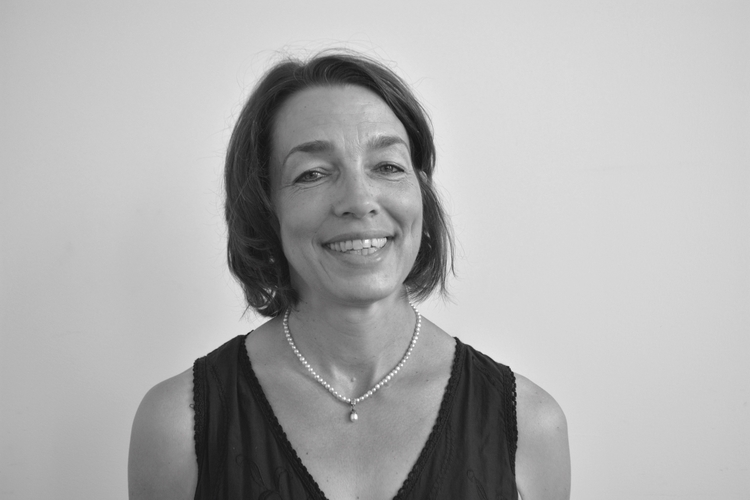
What are the challenges of being a woman in this field?
The challenges are less now than at any time in the past so I would be remiss not to celebrate that fact before going further. Women and girls have more opportunity and threshold respect in education, STEM fields, and even at their local garage or hardware store! Coming up, that was not how it was for me and for my female colleagues. Walking into any situation in a kitchen or supply store it was assumed that you did not know what you were talking about or did not have the grit to follow through. Commercial Kitchens in the 70's and 80's were male dominated locker-room style juggernauts for women. In public, if there was a man involved in the work then that man would receive all of the praise and acknowledgement and, at the time, many men did not share the spotlight easily.
This has been changing as men and women have been evolving and, though there are still issues emerging whose roots are embedded in the darwinian model, there are a lot of women mentoring women and a lot of men who are publically celebrating their female role models and co-creators. This shift in open collaboration is something I am very thankful for!
What woman has most influenced you in your work?
Two women come to mind right away: Trine Hahnemann and June Russell. Both are women that I met through grain!
Trine is a force of nature: a cookbook author many times over, a business woman, a baker, chef, mother, thought provoker, and fiercely loyal friend. Trine loves my native city New York as much as I love hers - Copenhagen. Trine showed me that if you believe in something then you fight for it and you don't worry about what other people think about you or your decisions. Her cafe in Osterbro, Copenhagen is one of the most lovely places to relax and enjoy the Danish experience of hygge. Trine is always the most gracious and beautiful host and has more deep friendships in more cities in the world than anyone that I know!
June, as you know, sheparded in the Local Grains Rule for Greenmarket. What sounded initially like a threat to our livelihood became the work that has defined my career. When I first came to the FCAC and met June I was the classic introvert - pretty much afraid to say anything to anyone. June was so driven and smart but also completely comfortable admitting when she did not know something. And when she wanted to learn about a thing she went out and talked to people in a way that made them open up and want to explain. I really respect how June comes to the table as herself. She continues to be an inspiration to me as I watch her grow into a leader in our shared work of figuring out how to feed people, help people build equity and do less damage to our planet!
Was there a moment where you felt you had hit your stride? If so, please describe.
This happens in little ways that are rather impermanent! I can describe the first time that I baked bread and knew from start to finish that it would be amazing. Having made thousands of sourdough loaves over the years there comes a time when everything flows nicely and comes together easily. This is the craft of baking but I can also relate this 'confidence' to times when I am handling a difficult personnel issue or a production problem.
This is a good question, though at first I was not going to answer it! Upon reflection I think the moment when I felt comfortable was when something went terribly wrong with a plan that we had in place and I did not panic. This happens now all of the time. I go into positivity mode and jump over the problem in my mind to see what the next best step or path to a positive outcome could be. There is always a next step and at times when things seem bleak it is important to keep an active problem solving flywheel going!
What do you love about being a Greenmarket baker?
Greenmarket feels like home to me. I can remember driving back from the market in the early days and over the GW bridge with an empty truck and looking back at the lights that were on in apartments. I knew that I had brought over 800 loaves of bread with me that morning and that I sold every one of them. I imagined the 800 kitchen tables that those loaves were on and the happy faces around the table and I knew that I had chosen my path well and that feeding people would be my expression of service - something that I had been looking for - what we would now call 'purpose'.
When we first came to greenmarket in the 80's it was an extension of the wild life that we had chosen. I do not mean wild in the sense of the 80's in manhattan but of the return to the wilderness of the Catskill Mountains. We were living in the most beautiful place on earth and we were making a life on our own terms - not part of the food scene or the corporate junket and yet we were able to bring our beautiful sourdough organic loaves into the greatest city in the world and sell them in a market surrounded by like minded producers. People were (and are) so appreciative of not only our breads but of our lives! That felt really heady to me because we worked really long and hard days and nights and it was amazing to have people appreciate what we did.
since Michael took over, I have to say that I have been additionally proud to be a producer in the market. The work that the team that he led has been doing has been amazing to watch from the sidelines and really personally inspirational. Not all of the initiatives worked - some of the markets in food deserts were improperly conceived but there was always a sense of transparency among the leadership and staff and pivoting to or away from failing decisions has been just part of the growth of the market. Being part of the greenmarket now, for me, means that I am connected to a powerful voice for people whose voices are often not heard. People who want to be of service and to help but do not know where to start and also for people who have no power in the existing food system.
-----------------------------------
Wendy Oakes Wilson
LynOaken Farms

What are the challenges of being a woman in this field?
Agriculture is still quite a man’s world. Especially conventional agriculture. Women have always been the “support” staff in agriculture, but there is not a well-respected farm out there that doesn’t have a woman pulling some strings behind the scenes!
There are more inherent possibilities to grow a new business with a woman at the helm (organics, niche producers, new products) but to lead a multi-generational, multi-income stream family business is always “interesting”. Men had been at the helm of LynOaken Farms for 100 years.
I am not out in the field and do not possess my family members’ green thumbs. I was actually the first to work for the farm without being expected to be in the field. For the first 5 years, it was mentally exhausting --- you don’t always see the “fruits” of your labors when you are streamlining accounting, opening up sales avenues and prioritizing human resource work.
I think one of the hardest things to get used to is “this is the way things have always been”. As general manager, I had to develop a strong sense of purpose and direction for the company that was a huge departure from the past.
What woman has most influenced you in your work?
As part of Generation X, we are really the first generation to both have to make changes and be able to enjoy the change. I look at my mother – she took a second seat to my father making sure that the farm books were done, running a picking crew and that their 5 kids were well taken care of. She didn’t need accolades or worldly possessions but she always had great respect for a job well done.
My mother worked for years not making a paycheck – simply doing what needed to be done to keep the business and the family going. At 91, she still is a force of nature. In effect, my mother gave me the grace to respect the work and the product but the impetus to make sure all abilities were appreciated and remunerated.
Was there a moment where you felt you had hit your stride? If so, please describe.
I have not hit my stride yet – that would be boring! We are constantly thinking ahead; what varieties to plant, what packaging will work best, how do we hire the best people, how do we get another generation interested in farming…
In 1984, I was the 18 year-old that said “I will never work on this family farm again!!” I wanted nothing to do with our small town or growing apples. I didn’t see a future for me on the farm because there wasn’t a position that would utilize my skills.
However, after living abroad and in Florida, getting married and wanting to have a family, an opportunity to increase LynOaken’s consumer direct presence presented itself and my husband and I moved back and we haven’t stopped innovating since.
What do you love about farming?
Farming is not for the faint of heart; we are beholden to Mother Nature (the real boss lady!), changes in environmental restrictions and immigration laws. We act as our own accountants and sometime lawyers. We are in the commodities business and need to know international trends and pricing structures. We have to stay on top of human resource training and tax implications.
BUT, agriculture allows the producer to feel pride in a job well done. At LynOaken we strive to produce the best quality, best tasting fruit our land and climate will allow. Seeing a smile on someone’s face when they bite into a Crispin in June (that was picked in October of the previous year) is a thrill that can’t be replicated on a factory floor!
-----------------------------------
Eve Kaplan-Walbrecht
Garden of Eve

What are the challenges of being a woman in this field?
To be honest, it’s great to be a woman in farming. I love being in a work environment where you’re not judged on your appearance, clothes, or female stereotypes. Once in awhile, there might be a man who underestimates my physical strength or feels like he has to do things for me that I can certainly do myself. I love being part of a community of farmer-colleagues in my town, and sometimes I am certainly conscious that I’m the only woman at the table or in the room.
What woman has most influenced you in your work?
When we were first getting started farming, we would go to winter conferences and some of the female presenters really became role models for me, when I found myself in their shoes – balancing farming and motherhood – just a few years later. One is Claudia Kenny of Little Seed Farms in the Hudson Valley, she has a great energy and has always been so open about sharing her journey with me – even though I only see her about every five years or so. She was homeschooling before I was homeschooling, then later she became involved in Mediation and Collaborative Communication, and I continue to find myself walking a similar path.
Was there a moment where you felt you had hit your stride? If so, please describe.
When we started the farm I was about 28. I felt young and saw myself as a “young person”. Then I had my first baby at 31, and all of a sudden I realized that the 20-somethings who worked for us saw me as being so much older. Actually it was sort of a sad feeling for me to be isolated in that way, but I also realized that by taking on so much more responsibility, between the farm and raising a family, I was in fact maturing and turning into a different and more mature person.
What do you love about farming?
I have always loved being outdoors, and preferred it to being inside. Nature is real and it helps you live fully in every moment. My college essay was about how I didn’t really want to go to college, I just wanted to live in the woods. Farming is about as close to “survivalism” as you can get, while sleeping with central heating and making a living in a cash economy. Childhood friends and relatives sometimes seemed surprised I ended up farming, because it wasn’t in my background, but in many ways I’m not surprised at all.





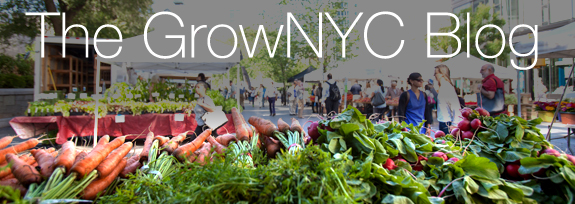


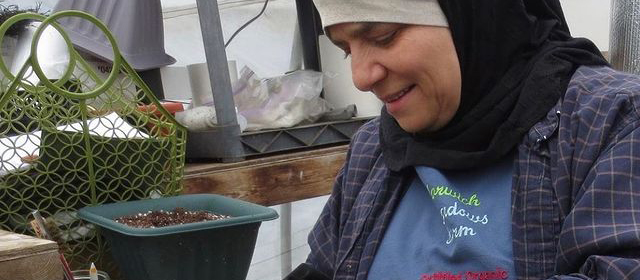









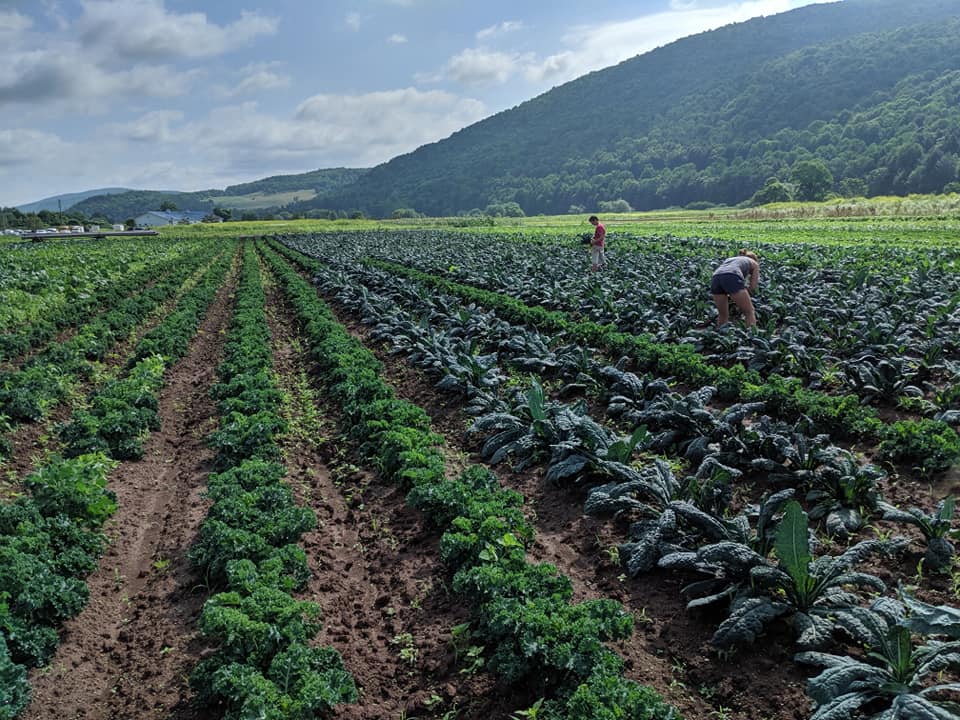
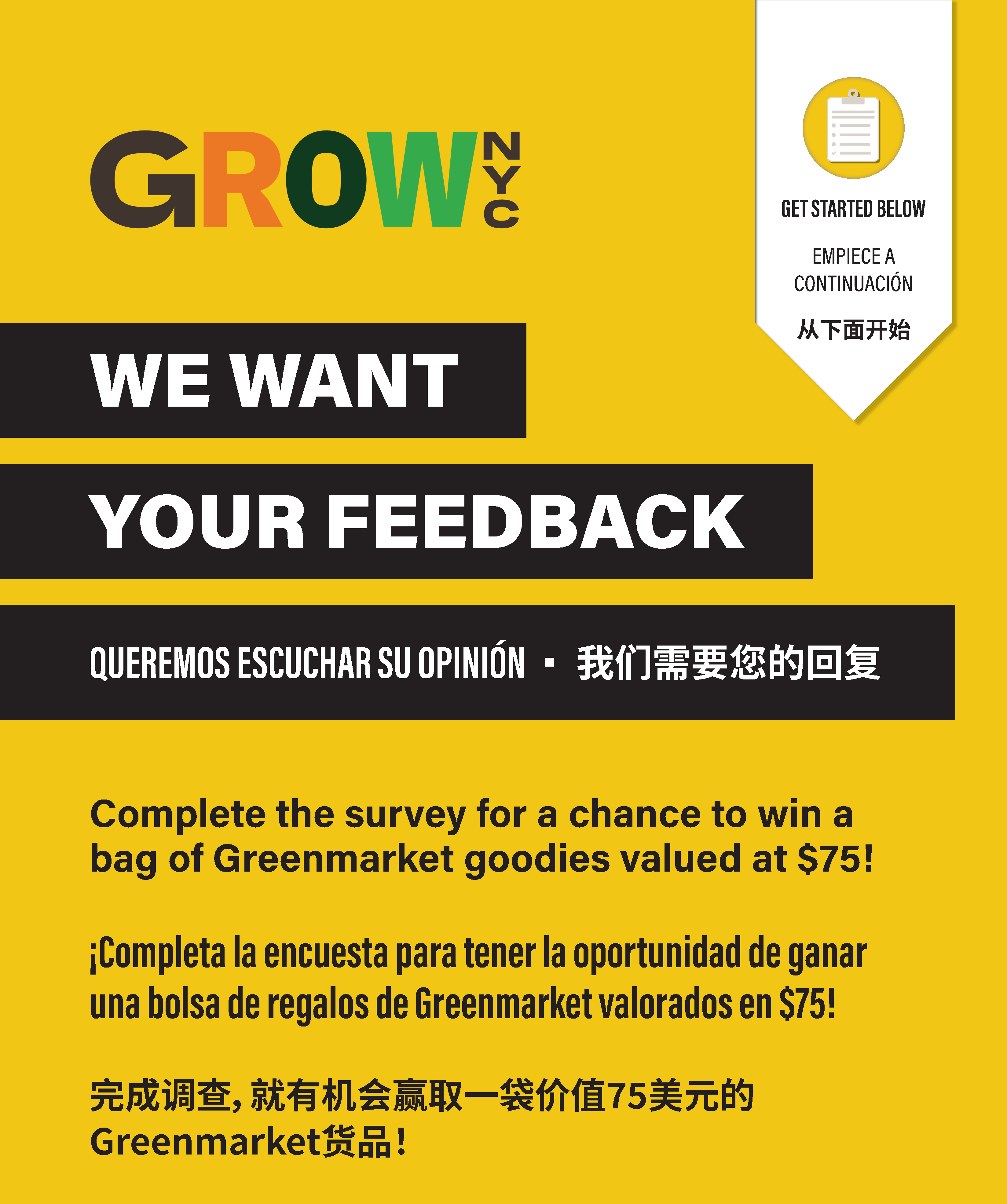
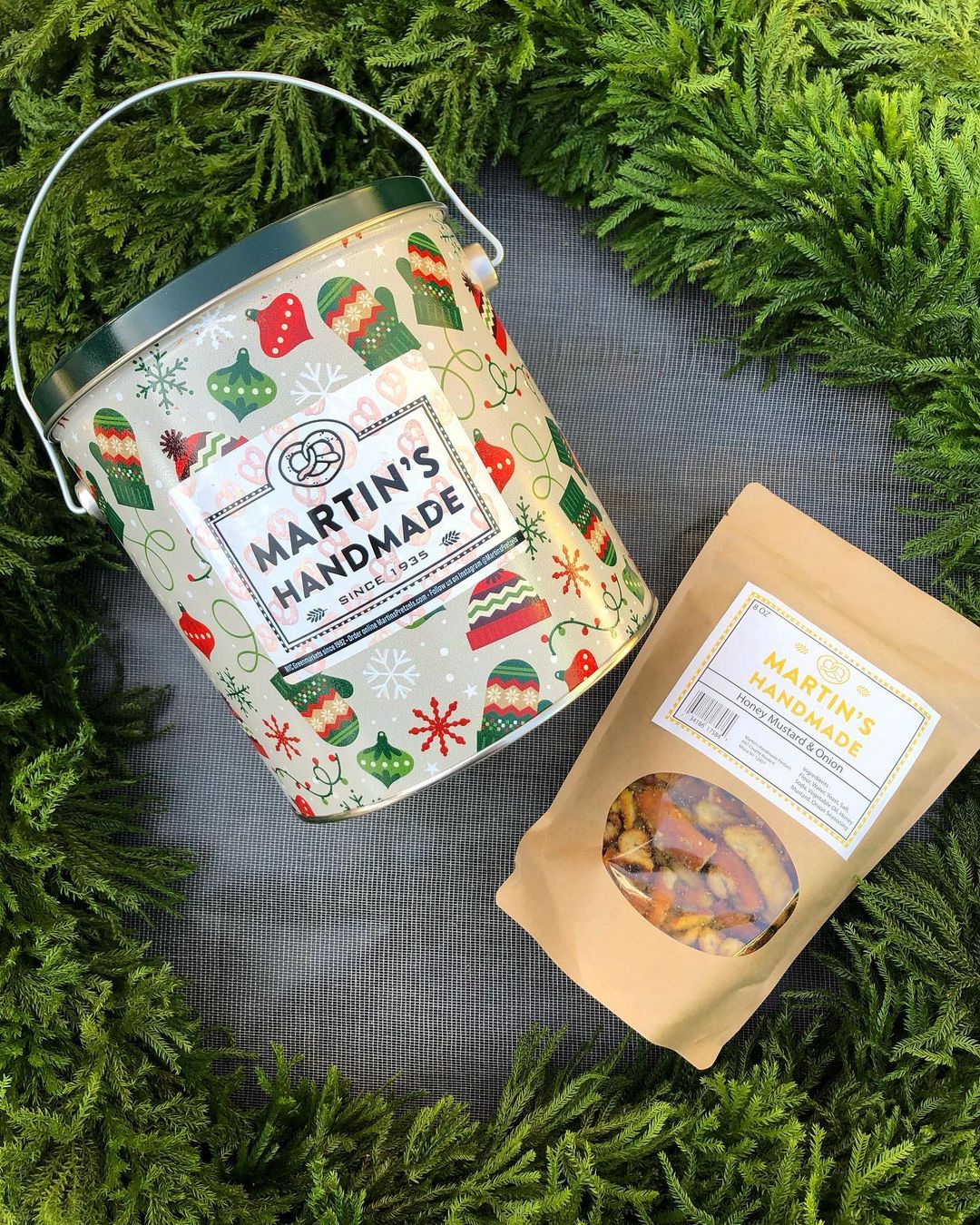
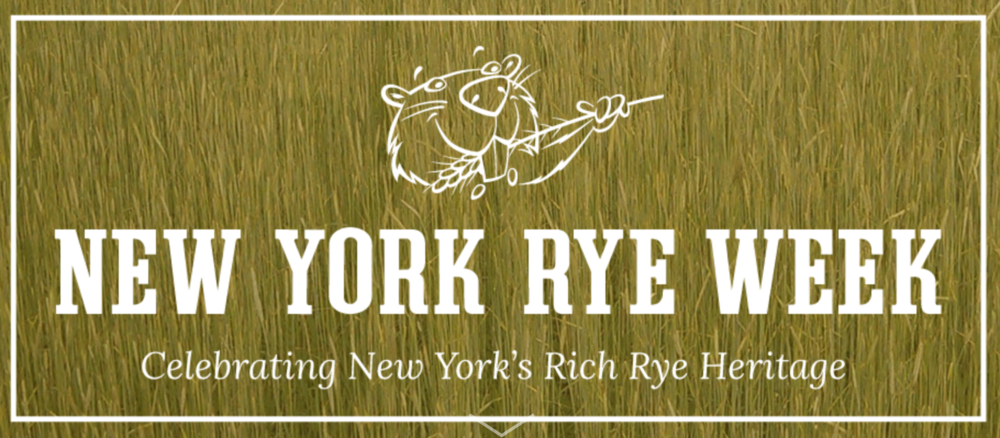


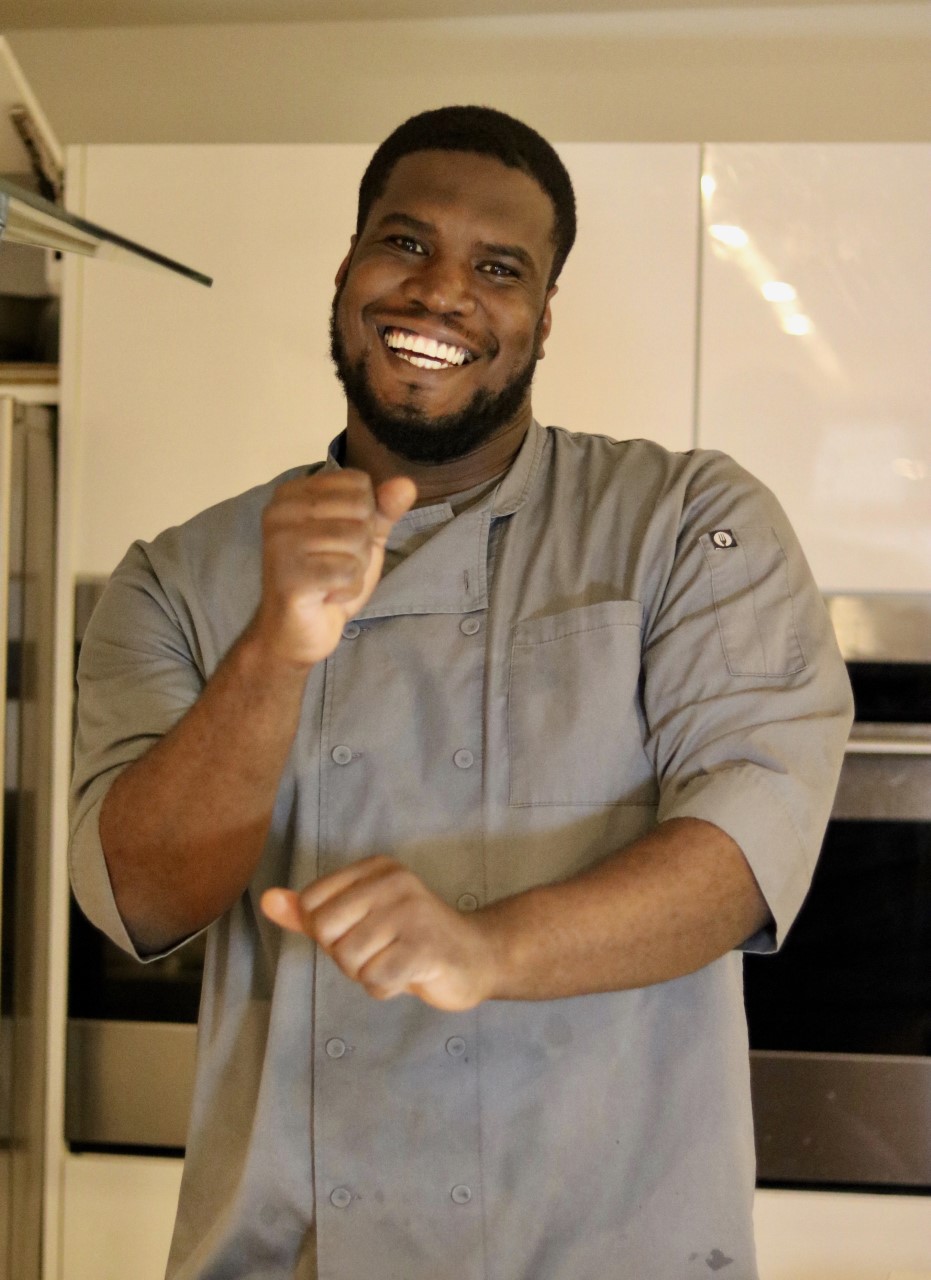
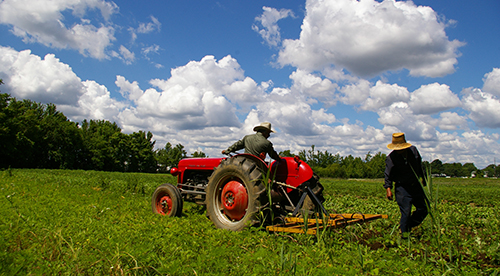
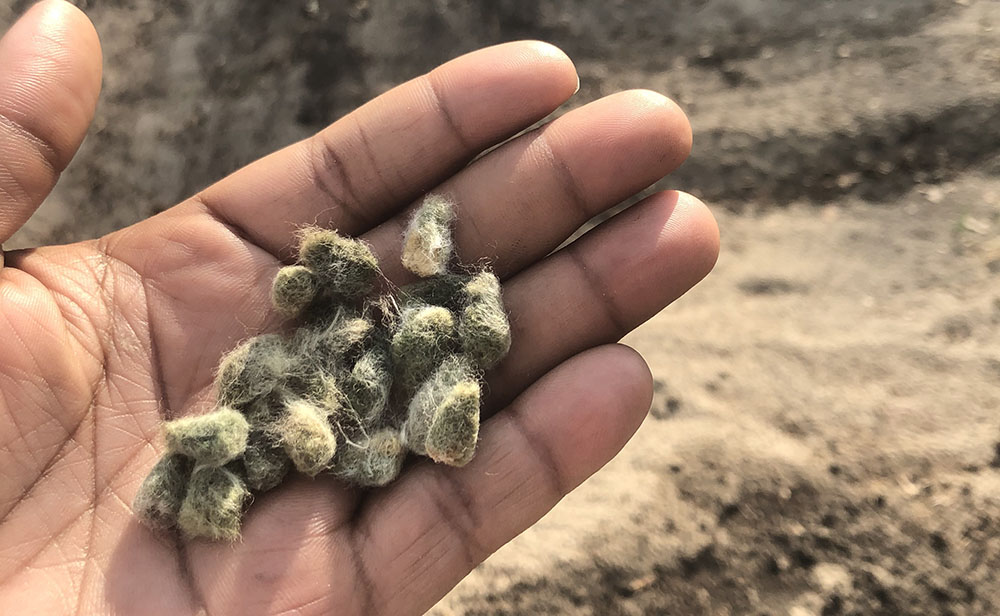
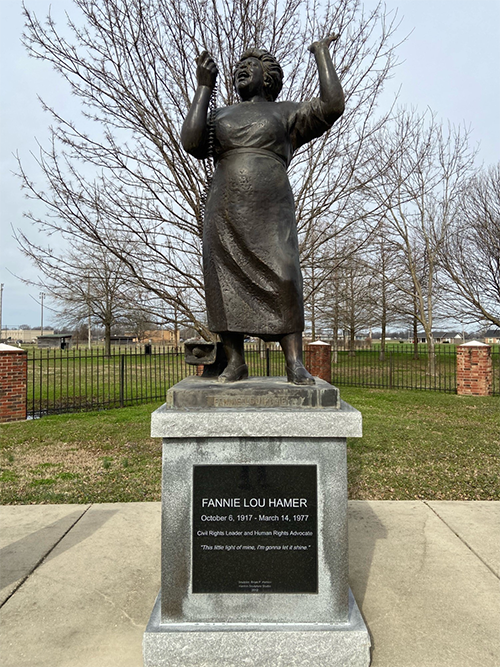
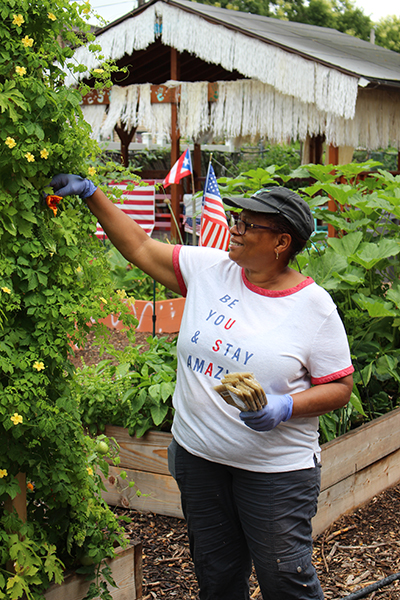

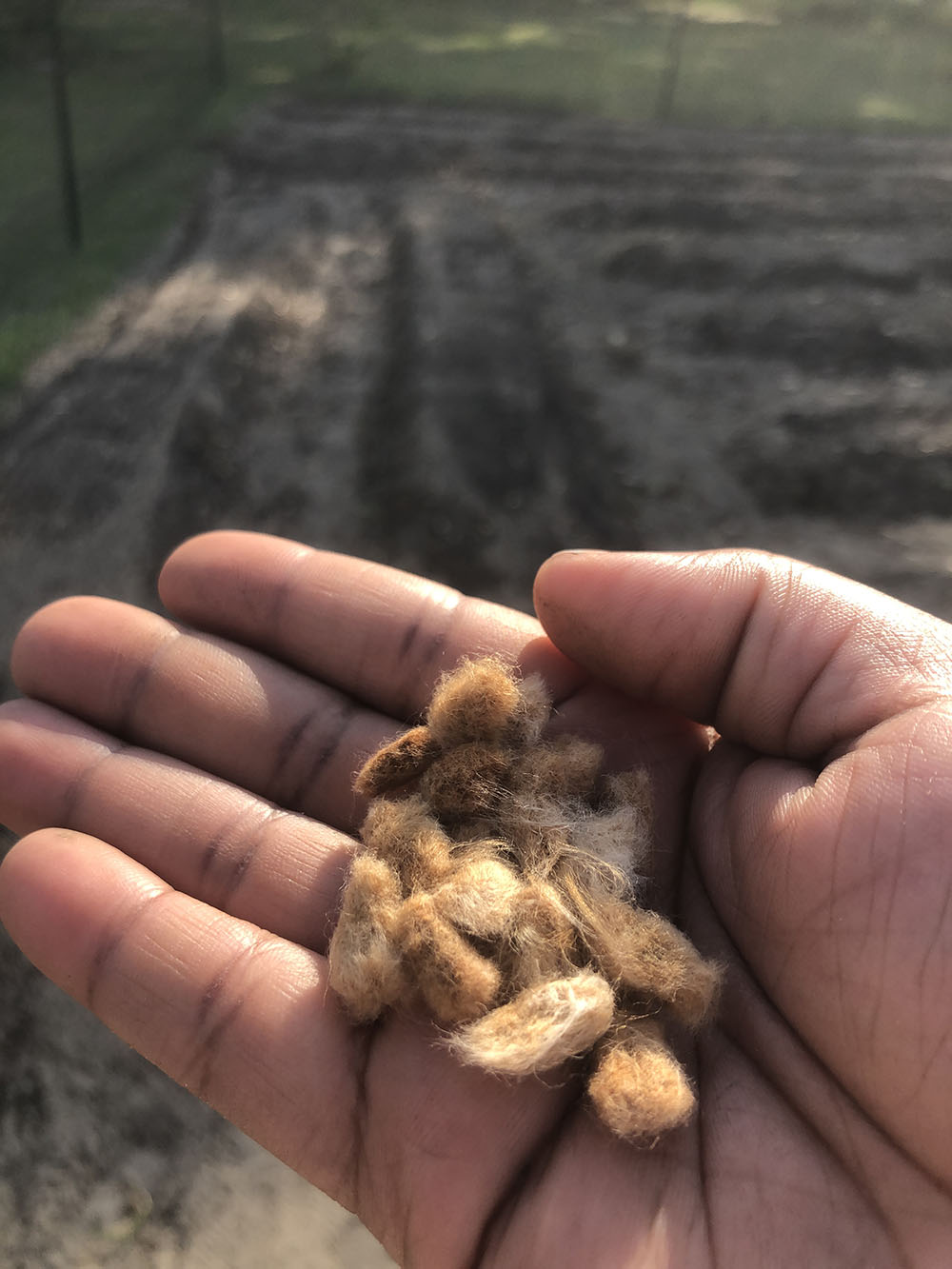


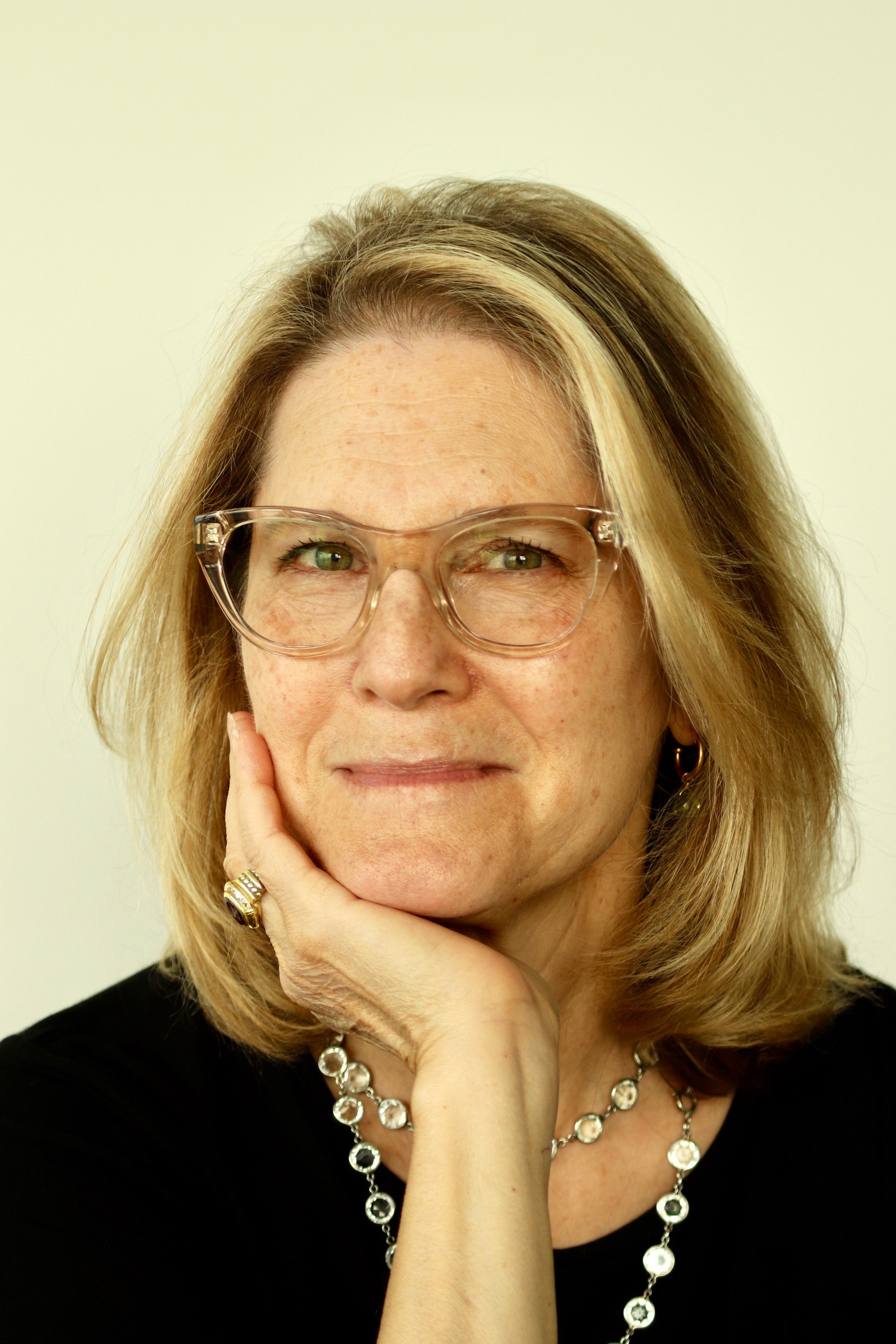 March 2020
March 2020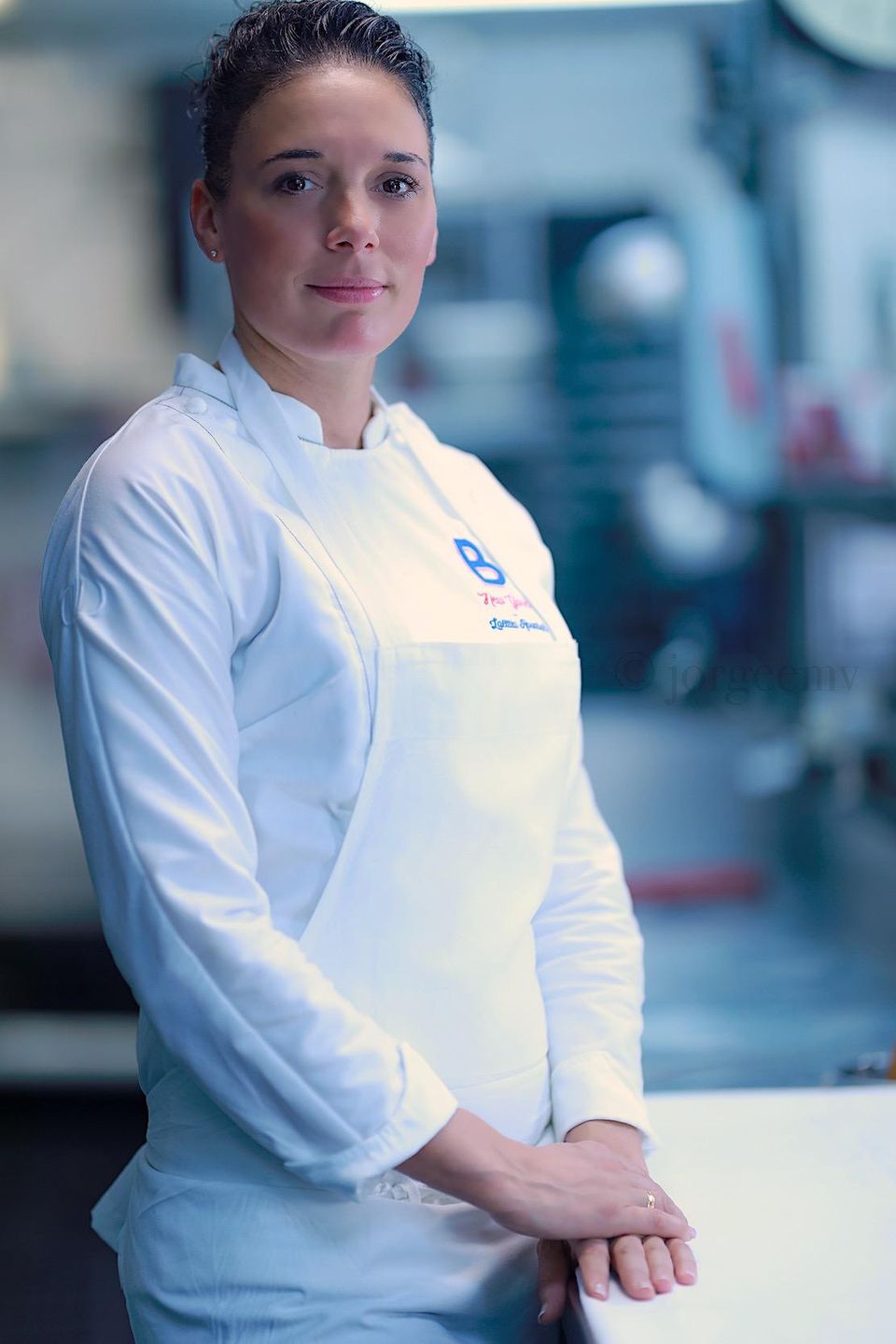 January 2020
January 2020  November 2019
November 2019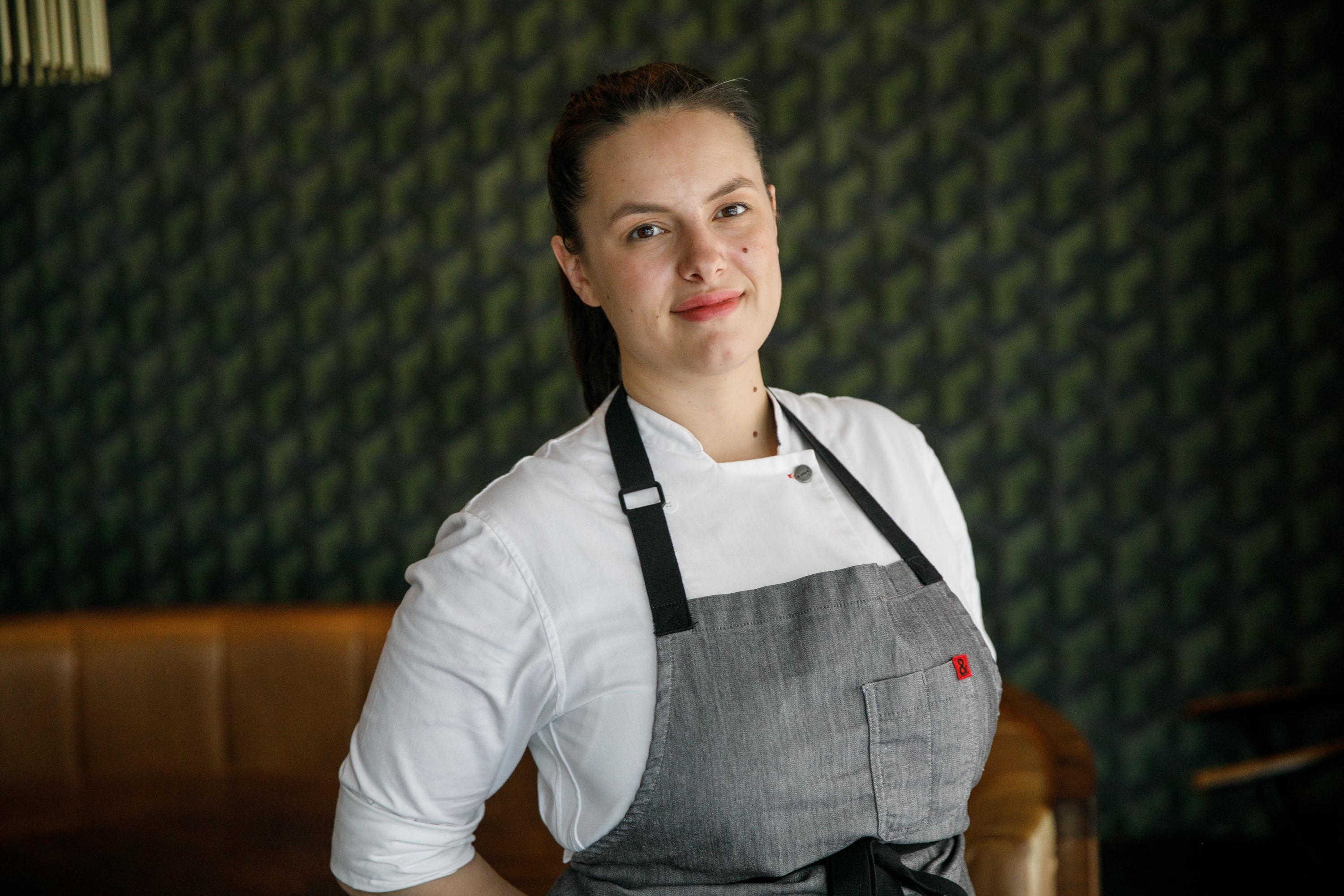 October 2019
October 2019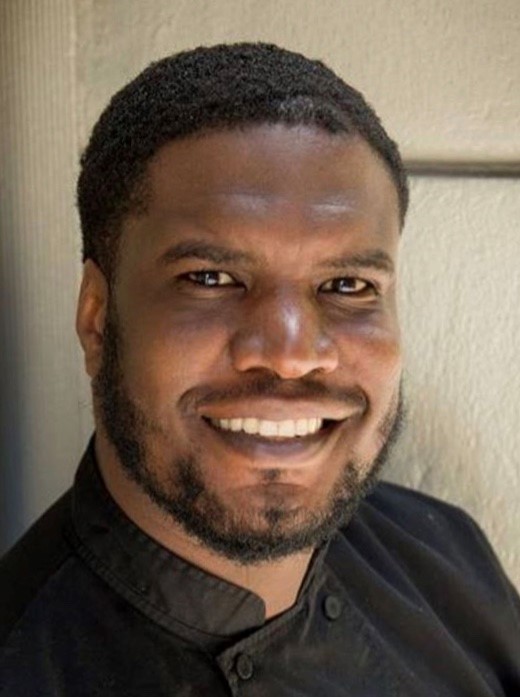 September 2019
September 2019